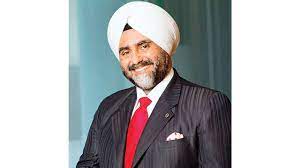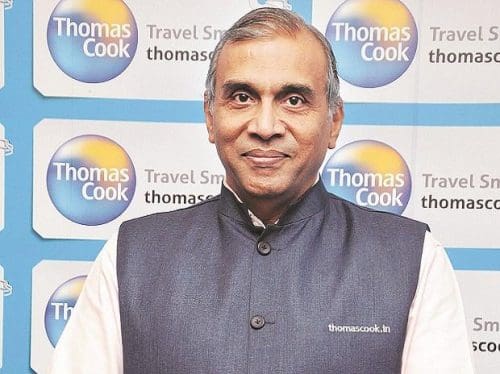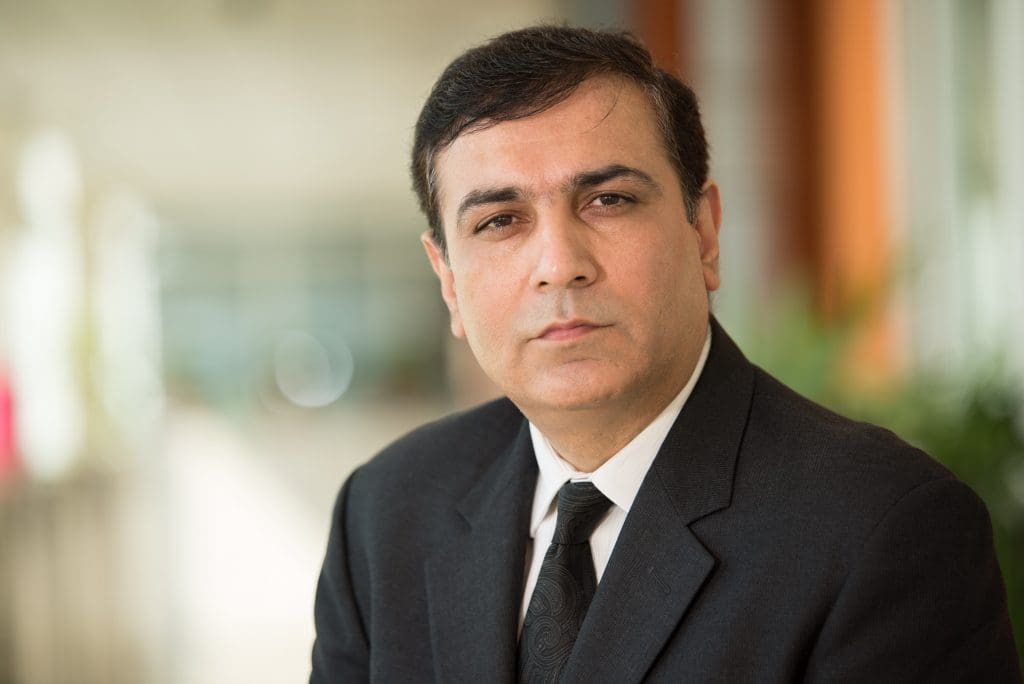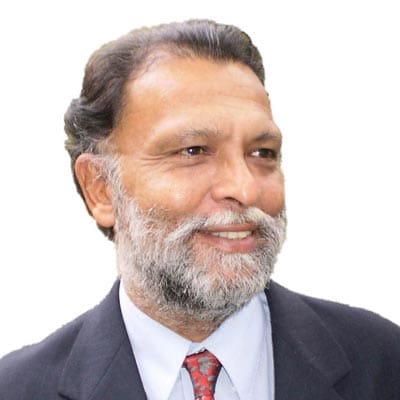As we approach the Union Budget 2022, slated to be tabled in the Parliament on February 1, Today’s Traveller has put together pre-budget views and expectations of the travel and hospitality industry.
With the Union Finance Minister, Nirmala Sitharaman holding a a series of pre-budget consultations in the run-up to the Union Budget 2022-23 with state finance ministers as a part of a larger exercise, the battered travel and hospitality industry has made its recommendations and views in many a representation to the Ministry.

Among the recommendations, measures like infrastructure status, interest-free loans, reduction in tax rate, moratorium and subsidies
The views and recommendations of a cross-section of India‘s travel and hospitality industry provide an insight into the industry’s expectations from the upcoming budget, within the viewpoint of sustainability and economic stability, revival and growth in the shadow of fresh Covid variants.
Mandeep S. Lamba, President (South Asia), HVS ANAROCK

Mandeep S. Lamba, President (South Asia), HVS ANAROCK.
“The Indian travel and hospitality sectors have suffered a series of setbacks in the last two years, and we are optimistic that the upcoming budget would support the sector’s recovery.
The industry’s long-standing request for industry and infrastructure lending status for the Indian hospitality sector, regardless of project cost, is first and foremost on my wish list, as it will help boost investment and incentivize hotel development, particularly in several off-beat leisure destinations and Tier 2 and 3 cities across the country.
Additionally, extending the credit guarantee scheme and lowering the GST rate on hotel tariffs are the much-awaited announcements that can help weather the tsunami that has wreaked havoc on the sector.”
Nishant Pitti, CEO and Co-founder, EaseMyTrip

Nishant Pitti, CEO and Co-founder, EaseMyTrip
“We are hopeful that the union budget will offer valuable opportunities to stimulate faster growth for the sector. Given that the sector contributes significantly to the economy and employment, the sector needs to be a key priority for the Union budget.
The Indian travel and tourism industry, which has witnessed one of the highest contractions since the pandemic, continues to face innumerable disruptions even now. There is more that needs to be done in terms of providing support like additional liquidity, interest-free loans, subsidies, and tax reliefs for industry stakeholders to ensure a faster recovery.
We can also look at reviving the travel sentiment by providing travel stimulus packages and tax incentives for personal and corporate travel. There is a huge pent-up travel demand and a reduction in personal income tax rates will place more money in an individual’s hands, which can accelerate the growth of travel.
The budget can also include incentives for states to spend more of their budget on infrastructure and connectivity enhancements that can aid tourism, especially in Tier 2 and 3 cities. Further, the industry is facing huge losses since the pandemic, a tax waiver for the next few years could be explored for a strong resumption of the sector.”
Madhavan Menon, Managing Director, Thomas Cook India Group.

Madhavan Menon, Managing Director, Thomas Cook India Group
“The Travel & Tourism sector has been a key contributor to the GDP and the Union Budget offers the government a significant opportunity to create a stimulus towards revival.
The last 2 years have highlighted the power of the domestic market and towards unlocking the full potential of domestic tourism, we look forward to Budgetary focus on infrastructure development, technology and health-safety across airports/aviation, road, rail and waterways. India’s waterways offer a large under-leveraged potential that includes sea and river cruising opportunities and cascading employment benefits to the catchment areas.
Empowering our global embassies, export (zero-rated) status to the inbound tour business and deeper marketing investment is much needed to kick start inbound demand and ensure competitive viability when compared to our neighbours in the region.
We look forward to the Government’s announcement of granting Industry status, rationalisation of taxes (including a complete GST tax holiday, exemption of TCS levy on overseas holiday packages and reduction in indirect taxes), removal of SEIS benefit capping of Rs. 5 cr and introduction of soft loans with favourable terms as a stimulant to enable the sector get back on its feet.
This will equally harness its force multiplier impact towards GDP contribution, employment generation/ skill development – much needed as the Country heads towards recovery, revival and growth. “
Jyoti Mayal, President TAAI ( Travel Agent Association of India)

Jyoti Mayal, Jyoti Mayal, President TAAI
“As President of TAAI, I very strongly believe there are several aspects which can be expected in the upcoming budget session to support the entire sector holistically ‘Travel Tourism & Hospitality which will help in making this sector survive, revive & economically support India to become the largest hub for the world.
For this, it is extremely important for both the central and state governments to work in tandem to facilitate this sector & support it to be included in the concurrent list to get Industry Status to make it more structured.
The government should strive to increase the disposable income of the middle classes so that discretionary spending will rise. Concrete steps should be taken to improve the cash flows and reduce the working capital burden on start-ups, existing MSMEs & SMEs.
Access to easy credit, reducing income tax rate & GST tax rate, abolishment of TCS & wage support with ease of business. Strengthening MSMEs, create a fund of funds scheme for technology adoption for use in industry 4.0, reviving the Credit Linked Capital Subsidy Scheme (CLCSS) for technology up-gradation.
To revive this struggling sector, we need ‘One India One Tourism approach inclusive of One Tax Structure.’Important points to be considered are E visa fees waiver for all tourist visas for 2022-2023, to support inbound revival Export status for tourism export earnings to support the inbound revival. Doubled, expenditure allocation for tourism ministry to enable intensive global reach out to support the inbound revival.
Domestic income tax travel credit for Indian citizens and Indian companies to support domestic retail and domestic mice pickup. Global bidding fund to enable bidding support to Indian mice companies to bring global mice events to India. EClLGS extension for tourism and hospitality.
ATF ought to be brought under the GST to make air travel more viable for the entire aviation stakeholders.Lastly & most vital is a structured mechanism to future secure travel agents’ payments to ensure that we create security for our travel agents & operators’ survival. Travel agents’ payments to principals are unsecured credit and we need to ensure that some form of mechanisms whether escrow or guarantee or underwriting based mechanisms are in place to ensure that travel agents money stays secure.”
Vishal Suri, Managing Director, SOTC Travel

Vishal Suri, Managing Director, SOTC Travel
“We look forward to the upcoming Union Budget’s consideration of further economic relief for the industry at-large with lower taxes and incentives to help boost the road to recovery.
The industry appreciates the Government’s support to enable revival and strengthen the sector for which we anticipate a complete rationalization of GST, reducing/ eliminating the TCS on outbound travel, and eliminating the 5 crore capping for the SEIS benefit.
Rationalization of tax structure will help reduce complexities and will enable the industry to focus and accelerate businesses further. Eliminating the 5 crore capping for the SEIS benefit would provide much needed impetus to post Covid revival of the tourism industry and promote employment generation.
More importantly to boost domestic travel and tourism, incentives should be offered to Corporates for organizing meetings and conference in India through partial or full tax exemptions to the corporates on the expenses incurred.”
Ajay Prakash, President TAFI ( Travel Agents Federation of India)

Ajay Prakash, President TAFI ( Travel Agents Federation of India)
“We seek assistance from the Government in enhancing the structural transformation that is needed to build a stronger, more sustainable and resilient tourism industry. We need to focus on the tourism sector as a sustainable engine for economic growth and development. The Government should reboot the tourism economy on a stronger, fairer and more sustainable footing.
“Though various governments have routinely ignored the pleas of the travel & tourism industry we must, nevertheless, continue to put forward our demands.
- 1. Rationalization of GST across the entire spectrum – At 18% on good hotels and restaurants and the same on tourist transport, guides and ancillary services we have priced ourselves out of the market as compared to other Asian countries.
- Another anomaly is the GST on ticket cancellations or booking of ancillary services on airlines – to charge separately for different services related to the same journey makes no sense. GST needs to be rationalised.
- 2. The TCS proviso has impacted Indian operators adversely as compared to overseas portals and tour operators. If the intention is to bring more people under the tax net, a token 1% ought to suffice. A 5% rate simply diverts business from Indian businesses to overseas entities.
- 3. The SEIS has been scrapped, after reducing the quantum and capping eligibility. A more rational scheme needs to be put in place to support the beleaguered tourism sector. One understands the futility of expecting any direct cash support, unlike the support extended by various foreign governments, but surely it’s not too much to ask that performance be recognised and rewarded!
4. Tourism can be at the heart of India’s revival story. It forms the mainstay of many countries’ economies. All we ask is that it be given its rightful due.”
Naveen Kundu, Managing Director, Ebixcash, Travel & Holidays
We all know that tourism and hospitality sector has been worst hit and it is now 3 rd year in row with practically no revenues . We have lost talent , lost business and everything is in a stand still mode. Even domestic tourism that shows some signs of recovery gets into a lean patch with every wave leaving everyone guessing , ‘what is coming next’.
Investments in tourism is at an all time low and if not now , then I feel there will never be a time when the tourism sector in this country will ever get its due.

Imagine the sector that generates 50 million jobs a year , contributes almost 10% to India’s GDP and forms the core of large indirect taxes, gets just a 2,000 crores in budget allocation, with no specific plan ever narrated by any Finance or Tourism minister in the plan.
Personally , I have huge expectations from this budget and these are Budget recommendations reflecting industry needs:
- 1. Declare Tourism sector as a Priority Sector for the next 2 years & offer it industry status
- 2. Provide budget for loans with rates of interests as offered to Industry , with flexibility of re-structuring the loans at least twice due the lean cycles we observe every now & then. Offer tariffs which are at par with the industry if not lower .
- 3. Provide tax concession to hotels and resorts in India to boost demand for domestic tourism and inbound tourism
- 4. Provide tax subsidy to travel agents who promote inbound tourism ( FOREX earning agencies ) & offer them incentives on earning FOREX as exports sector
- 5. Create a budget to appoint several large PR companies globally to promote Product INDIA with all its diversity and hospitality
- 6. Provide Tax refunds to Domestic travellers who spend large amount of their vacation budgets in india.
- 7. Offer a financial tax support to Corporates / associations who conduct their meetings & events in INDIA
- 8. Offer direct financial support upto 1000 crores for all global companies / associations and world bodies who conduct their events , conferences and exhibitions in india
- 9. Announce a state of art Skill development institute on the lines of IIM which will be India’s first Tourism University offering various courses.
- 10. Reduce Haulage on Luxury trains and offer tax subsidy on operating more luxury and Bharat Gaurav trains in India
Vineet Verma Executive Director & CEO, Brigade Hospitality

“Hospitality & Tourism sectors have been the worst affected during this pandemic. The impact has been widespread and unfortunately expected to be long lasting. While both the Centre and State governments have tried to extend their support to some extent, the sectors need more long term resuscitation measures in order to get back on track.
Reduction in GST rates to help boost larger spends, according Infrastructure status to hotels, lower interest rates on borrowings, reduction in property taxes, partial if not full waiver of other licence fees including Liquor licences, lower power tariff, are some of the boosters that our industry so desperately needs at this point of time.”
Gurbaxish Singh Kohli, Vice President, FHRAI (Federation of Hotel and Restaurant Associations of India)

Gurbaxish Singh Kohli, VP, FHRAI
Federation of Hotel & Restaurant Associations Of India (FHRAI), the Hospitality industry association, has sent its pre-budget recommendations to Finance Minister Nirmala Sitharaman.
Among its recommendations, it has suggested inclusion of hotels and tourism related sectors in the National Infrastructure Pipeline, stating that the projects required to augment the tourism infrastructure in terms of hotel guestrooms, convention and exhibition centres, airport infrastructure, roads, last mile connectivity between popular tourist centres etc, be included in the list for funding under the National Infrastructure Pipeline, apart from the 7400 infrastructure projects already identified.
The association put forward that this inclusion in the National Infrastructure Pipeline (NIP) set up by the Development Financial Institution (DFI) by the finance ministry for promoting infrastructure funding will enable the struggling hospitality sector to avail funds with extended repayment periods and at a low rate of interest, according to the association.
Said Gurbaxish Singh Kohli, Vice President, Federation of Hotel and Restaurant Associations of India, to IANS, “Since foreign travel is at least 12-15 months away from returning to the pre-pandemic levels, Centre should give impetus on domestic travel.
“We have requested Finance Minister to allow domestic travel for individuals and corporates to be a deductible expense in their IT returns. This tax incentive could be offered for a fixed number of years until hospitality comes back to pre-pandemic conditions.
“The move will encourage the 28 million-plus people who otherwise travel out of the country, to holiday in India. We also ask for a review of the decision to introduce LTC cash vouchers in lieu of LTC fare to the Central Government employees.
“We have also requested that hospitality should be accorded an industry status and set up a corpus fund to incentive’s all states to align their policies and set off any losses that may occur due to its implementation. The lower cost of operations spread over a higher payback period will reduce the cost of our supply which will boost demand.”
At present, hotels built with an investment of Rs 200 crore or more have been accorded infrastructure status. This threshold should be brought down to Rs 10 crore per hotel to give a fillip to the budget segment hotels. This will enable hotels to avail of term loans at lower rates of interest and also have a longer repayment period.”
Among other measures, the industry has requested for working capital support with a guarantee from the Centre to banks and NBFCs. In addition, it has asked that the Rs 60,000 crore ‘Loan Guarantee Scheme for Covid-Affected Sectors be notified with immediate effect.
FHRAI also sought a moratorium extension of at least one year for loans availed under Emergency Credit Line Guarantee Scheme (ECLGS) due to continued disruptions in the sector, making survival difficult.
OTOAI writes to Finance Minister – Riaz Munshi, President, OTOAI (Outbound Tour Operators Association of India)

Riaz Munshi, President, OTOAI
The Outbound Tour Operators Association of India (OTOAI) recently wrote to the honorable Finance Minister Smt. Nirmala Sitharaman, ahead of the Budget 2022, requesting reliefs and concessions for the Outbound Tour Operators.
The Association in its letter clearly stated that the tourism sector in India provides employment to 8 – 10% of the total population and is one of the leading sectors for an engine of economic growth. In FY20, tourism sector in India accounted for 39 million jobs, which was 8.0% of the total employment in the country.
By 2029, it is expected to account for about 53 million jobs. As per figures compiled by Statista, a research agency, the total direct and indirect employment generated by the travel and tourism sector in India was 12.38%. Further according to India Brand Equity Foundation, Indian tourism industry is set to rise @6.2% a year by 2029 reaching the economic size of Rs. 35 trillion (US Dollar 688 billion). The sector will provide employment equivalent to 9.2% of the total. These facts and figures clearly reinstate the importance of the tourism sector and vitality of its growth.
The Requests made to the Finance Minister included –
- 1. Roll-Back TCS
- 2. Not make Pan Card mandatory for foreign remittances
- 3. Relief from GST for a minimum period of 2 years
- 4. Grant lower Interest Loans to the Travel Agents and Tour Operators for at least one year
- 5. Include Outbound Tours under the LTC Scheme so that business avenues can grow for Outbound Tour Operators
- 6. Lastly, the much-awaited Industry Status should be granted to the Travel Tourism Sector
Riaz Munshi, President, OTOAI said, “We understand the plight of the outbound sector, which has suffered immensely in the last 22 months. The decision of yet again postponing the movement of commercial international flights from India till February 28 has not only dampened our spirits but also closed the business doors for us.”
He continued, ” Thus, it becomes vital that the Government offers some relief to the Outbound Tour Operators by taking into consideration the above mentioned requests made by us. At OTOAI we are constantly striving to work towards the benefit, upliftment and care of the Outbound Tour Operators in India and we hope the Government listens to our requests.”
Dilip Modi, Founder, Travel Union – Rural B2B tech platform

Dilip Modi, Founder, Travel Union
Dilip Modi, Founder, Travel Union, shares his views from the perspective of a rural B2B travel-tech platform, digitally empowering and building a leading travel agent community in rural India to address the needs of rural customers.
“The travel industry has been severely impacted in the past 2 years and the outbreak of the third wave and the effects of omicron has further hampered the progress of the travel industry. The travel industry is one of the largest contributors to employment in the country. With the current sentiment, the industry needs major support from the government to overcome the challenges brought by the pandemic.
Budget 2022 should focus on lending substantial support to the travel industry. Right now it is important to revive the industry by taking initiatives that protect small and medium businesses operating in the sector while extending a helping hand to travel agents. Providing tax relief in the TDS & GST applicable to travel agents and SMEs will go a long way in doing just that. We need to build and focus on rural travel as well since it is one of the aspects of the travel sector that needs our focus and investment. Investment in technology can play a pivotal role in bringing the next wave of innovation, employment and development in the travel industry.“
Manish Rathi, Founder & CEO, IntrCity – inter-city mobility platform

Manish Rathi, Founder & CEO, IntrCity
IntrCity is India’s pioneering inter-city mobility platform, offering both train and bus services to budget travelers. Its flagship brand IntrCity SmartBus provides standardised travel options around India’s long-distance routes, operating across 630+ routes in 16 states. Manish Rathi shares pre-budget expectations for the mobility sector.
“The intercity mobility segment has seen a consistent month-on-month growth after the 2nd wave. The third wave’s influence has been felt, and some trip plans have been postponed, particularly in states with higher levels of dispersion. The silver lining for next year is that, because of the government of India’s rapid vaccination effort, travellers are confident in travelling to locations, and the industry is looking forward to normalcy as COVID daily cases reduce again.
We are hopeful that in the forthcoming budget, stronger infrastructure initiatives will be incorporated into the National Infrastructure Pipeline. The mobility needs of smart cities will lead to the next wave of inter-city mobility growth and enable smooth connectivity with the nearest metro city, besides connectivity between those cities. Better multiple boarding infrastructure in the city connected to SmartBus and digital booking will drive this growth and power the economic growth of these cities.
2021 was a pivotal event in the transition to electric mobility within the intracity segment. The government should implement a few more favorable regulations to boost green mobility. Additional policy impetus should be provided for all forms of green fuel and their enablement for inter-city mobility: batteries with longer distance capability to power EVs, charging infrastructure, and highway CNG stations.
Besides, they should also monitor the implementation of the All-India Tourist Permit for Commercial Vehicles, ensuring that it is accepted by all state RTOs.”
Read More: News



